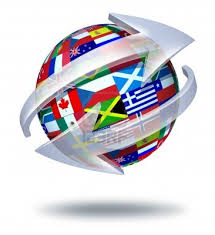Economists have different views on free international trade. Some believe that free trade helps in a numerous ways like lower cost of various products in the domestic market, increased variety of goods, flow of technology and ideas and so on. But for a developing country free trade would appear as competition to the domestic industries. Therefore many arguments are made for restricting trade. Some of the disadvantages of free trade to a developing country are:
The Infant Industry Argument: New industries need some time to get started and make their roots stronger. If there is no restriction on free trade then the newly launched industries will face immense competition. Because of economies of scale, the foreign producers provide goods at a lower price. The new industries may feel difficulty in surviving in such highly competitive market. This may further discourage new companies to come up and hence will hinder the growth of the economy.
Jobs argument: When a country starts importing a particular good, the domestic producers of the good are left with very less demand. This leads to a reduction in the production of these goods. A reduction in the production leads to less employment of resources in that industry. The workers in that industry would lose their jobs. Although the hardship of the workers is just in the short run, as ‘free trade creates jobs at the same time that it destroys them’ (because of free trade the export production will increase and thus employment will increase), still this process may take time and workers have to suffer initially.
Unfair competition argument: Different countries have different trade policies. Often, the developed countries have different laws and trade policies which are unfair for the developing countries. Suppose there is a trade of wheat between two countries A and B. the government of country A provides a subsidy to the wheat producers but there is no such thing present in country B. The price of wheat that A offers will be lower and hence country B will get no market and will incur losses. In such a situation there is unfair competition between the producers. Free trade is not beneficial in such a situation. Some trade restrictions must be there.
National Security argument: Economists believe that some important industries must not be a part of the free trade as it may affect the national security. For example suppose a country imports steel which is used to manufacture weapons from the foreign country, then at a situation of war (if in future) the foreign country might stop the trade and domestic country will lose.
Free international trade is always a debatable topic. Some economists found explanations to disprove the arguments while the supporters emphasized on the empirical results.
Click here for government certifications





29 Comments. Leave new
Well explained
thanks
Very well written
thanks
Agreed! Great points
🙂
nice article…but competition can be healthy also..it can motivate domestic producers to produce goods according to international standards…
Yes.. that is the other side of the coin.. many economists supported free trade with such a claim
article is good…and the examples are good too…
thanks sunaina
Well explained!
thanks
Agreed! Very well written!
thanks
Truly agreed….:)
thanks
well defined article!
thanks
Well argumented!
thanks
good work 😀
🙂
nicely explained. keep the good work!
🙂
Nicely articulated.
thank you
International trade affects the domestic market.
interesting one megha !
🙂
thanks 🙂
Informative article.